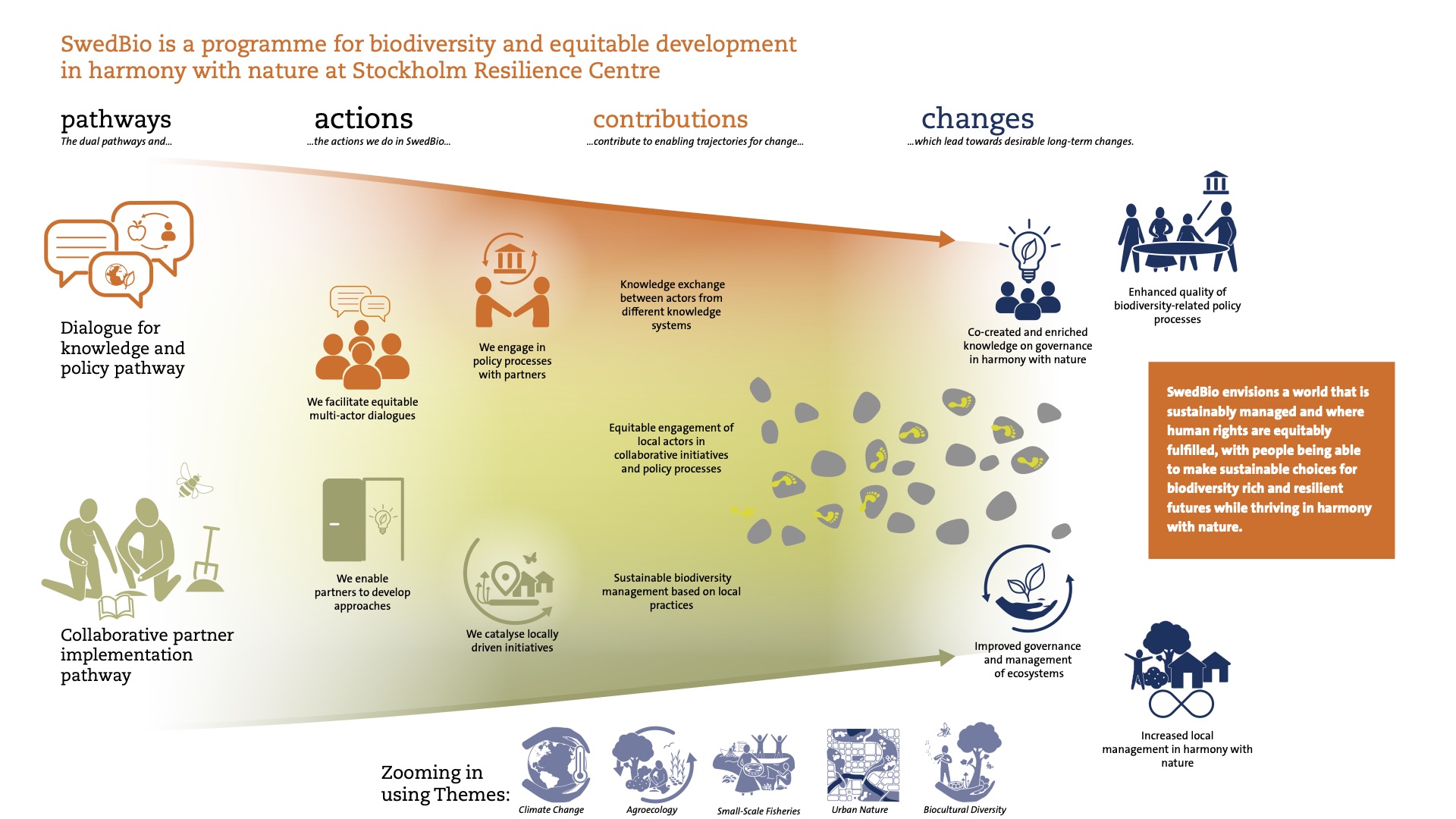SwedBio’s new programme phase will continue to advance sustainable and equitable governance of biodiversity knowledge and policy. This will build on the long-term legacy of SwedBio in key global biodiversity processes, in close collaboration with partners in our broad enabling network from local to global.
While the established way of working and prioritised processes will to a large extent remain in the coming phase, the structure of the programme for the coming phase has been revisited. In our new Theory of Change, we outlined how we will continue to work with biodiversity and equitable development.
“SwedBio envisions a world that is sustainably managed and where human rights are equitably fulfilled, with people being able to make sustainable choices for biodiversity rich and resilient futures while thriving in harmony with nature.”
SwedBio’s vision
Pathways for change
SwedBio will focus its effort on two impact pathways for engaging with biodiversity and equitable development:
Dialogue for knowledge and policy pathway
In this pathway, SwedBio will advance policy agendas related to biodiversity, by enabling dialogue and co-production of knowledge across knowledge systems, including actors from indigenous peoples, local communities, policymakers, practitioners and scientists.
Collaborative partner implementation pathway
SwedBio will continue to work with strategically selected partner organisations to support the implementation of locally-driven sustainable and equitable solutions.
To learn more about funding and collaborating with SwedBio, visit Collaborate with SwedBio.
Areas of work
Through these two pathways for change, SwedBio will focus its work across on a number of different areas.
SwedBio’s work will fall under five themes:
- Climate Change
- Agroecology
- Small-Scale Fisheries
- Urban Nature
- Biocultural Diversity
To advance biodiversity knowledge and its policy agenda, SwedBio will work with five approaches:
- Dialogues and Learning
- Values and Governance
- Art and Culture
- Assessments and Indicators
- Communication and Training
Finally, in all of SwedBio’s operations, SwedBio applies a number of principles to all of its work:
- Adaptive Approach and Social-Ecological Systems Perspective
- Gender Equality
- Human Rights-Based Approach
- Conflict Perspective
Contributions and changes
In working with these areas and engaging with the two impact pathways, SwedBio aims to contribute to:
- Knowledge exchange between actors from different knowledge systems.
- Equitable engagement of local actors in collaborative initiatives and policy processes.
- Sustainable biodiversity management based on local practices.
Finally, SwedBio’s hope is that the impact pathways, areas of work, and contributions from the programme and partner’s combined efforts lead to a number of changes:
- Enhanced quality of biodiversity-related policy processes, for more relevant policies.
- Co-created and enriched knowledge on governance in harmony with nature, for context-appropriate and equitable solutions.
- Improved governance and management of ecosystems, which realises the implementation of biodiversity-related policies.
- Increased local management in harmony with nature, which contribute to enable sustainable and equitable livelihoods.


